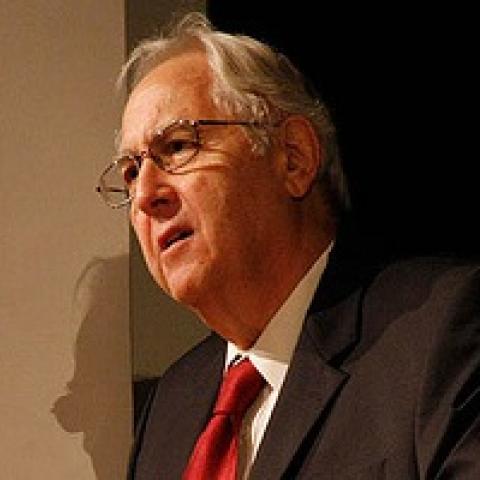At a time when homicidal attacks on Israeli citizens continue and America flounders on a strategy to defeat ISIS, it is disappointing to see that Obama has chosen to appoint Robert Malley as “Senior Advisor to the President for the Counter-ISIL Campaign in Iraq and Syria.”
According to Josh Earnest, Malley’s job will be to “support our reinvigorated diplomatic track toward a political transition in Syria.” Given Malley’s track record, his appointment will more likely lead to the further appeasement of Iran and will prove to be detrimental to Israel.
As Judicial Watch pointed out, notice of his appointment seems to have escaped the eyes of the mainstream media.
The administration wanted it that way, burying it in a press briefing which took place in a Paris hotel during the climate summit. Malley, one might remember, was bounced from a role in Obama’s 2008 campaign because of protests from the Jewish community about his private meetings with Hamas. A little while later, he was back as a senior policy advisor to Obama, who sent him to Egypt and Syria to discuss Obama’s policies on the Middle East. However, the policies that Malley has advocated have all been focused on recognizing the legitimacy of Middle East dictators and dictatorial, theocratic regimes.
In 2007 he wrote an op-ed that appeared in the Los Angeles Times advocating a renewal of Syrian-Israeli peace negotiations at a time when Israel and the U.S. believed it would be futile and even detrimental. On the contrary, Malley argued, it was the right time for an Israeli-Syrian peace agreement, because Syria is “unlikely to sponsor militant groups, jeopardize its newfound status, destabilize the region or threaten nascent economic ties for the sake of ideological purity once an agreement has been reached.” Of course, Damascus couldn’t be expected to “cut ties with Hezbollah, break with Hamas or alienate Iran as the entry fare for peace negotiations.”
Malley has been no friend to Israel. In articles primarily appearing in The New York Review of Books, he regularly focused on Israel’s supposed sins and responsibility for lack of peace between Israel and the Palestinians. A profile of him in Discover the Networks has links to his articles, many of which were co-authored with Hussein Agha, a former advisor to Yasser Arafat. Malley’s father was Simon Malley, a leader of Egypt’s Communist Party, a confidant of Yasser Arafat, and a fierce critic of Israel. Clearly, the tree has not fallen very far from its roots.
From 1998 to 2001, Malley was President Clinton’s special assistant for Arab-Israeli Affairs. In July 2000 he became a member of the U.S. peace team bringing Israeli Prime Minister Ehud Barak and Arafat together for peace talks which ended in failure. Clinton and Barak blamed Arafat for it. So did U.S. Ambassador Dennis Ross, who claimed the talks failed for one reason -- Arafat wanted them to fail. Ross did not believe Arafat could end the conflict:
We had one critical clause in the agreement, and that clause was, this is the end of the conflict. Arafat’s whole life has been governed by struggle and a cause … [F]or him to end the conflict is to end himself.
Malley was having none of it. He blamed the failure on Israel; it was Israel, not the PLO, who was the inflexible partner at the Camp David talks.
Summing up her take on Malley’s current appointment, Lori Lowenthal wrote this in The Jewish Express
Malley is the kind of new-age negotiator who thinks there is no tyrant too awful to shun -- unless, of course, you are talking about Israel -- and is always eager to play up the “positive” aspects of genocidal terrorist regimes as the justification for allowing them right there in the tent, seated next to you. ... With a history of dissing Israel, snuggling up to Hamas, shielding Assad, and promoting the containment of a nuclear-armed Iran, is it any surprise that Malley is Obama’s choice to spearhead the U.S. response to ISIS?
Malley’s appointment occurs just as a new IAEA report establishes that contrary to its claims, until 2009 Iran had conducted work on developing nuclear arms. This is the first time the agency has made it clear that Iran’s scientific work is linked to nuclear weapons development. It also coincides with the lifting of sanctions on Iran, that are about to be implemented.
Iran has already made threats that it will not comply with the Joint Comprehensive Plan of Action demands if they do not agree with the IAEA’s conclusions, as Armin Rosen reports in Business Insider He also notes that, in any case, the agreement is voluntary and non-binding.
Iran may already be cheating on the nuclear deal. The administration has already made it clear that the U.S. does not really care if Iran had previously lied and had been working on nuclear weaponization. Given their past behavior, it is now more than likely that with sanctions lifted, Iran will find ways to move ahead with its nuclear program.
Robert Malley, who now will be advising on Iranian relations with the United States, believes that if Iran develops a nuclear weapon, the U.S. would be able to deal with it as it did with the Soviets -- by pursuing a policy of containment. In 2012, writing in Foreign Policy, Malley had criticized Obama in 2012 for being too much of a hawk in not pursuing such a policy.
Malley is the perfect man for the job now that the administration wants Iran-U.S. relations to move ahead despite Iran’s support of terrorism, violation of human rights, and its desire for nuclear weapons capability. He has obviously been promoted by the president because of his advocacy of a “soft” policy towards Iran.
Malley’s appointment as the new “czar” of a strategy to defeat ISIS is a signal of where the Obama administration is headed.
















